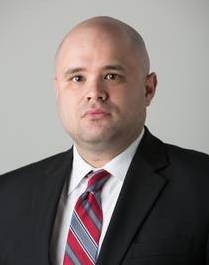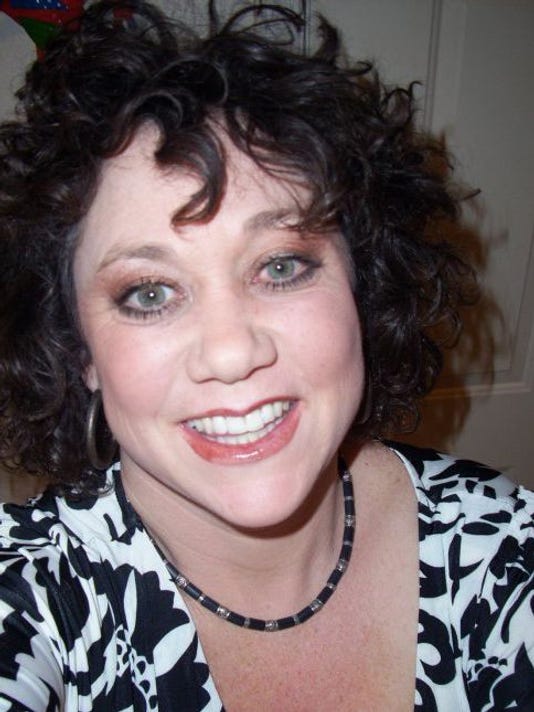Bryan Horwath, Las Vegas Sun gaming reporter
by Kim Palchikoff
How did you get into the business?
I’ve been a gaming reporter at the Las Vegas Sun and Greenspun Media Group for a year. I started my career as a high-school sports reporter before later transitioning to the news side, covering city councils, county commissions and state politics. I grew up in Wisconsin and have spent time at newspapers there and in Minnesota, North Dakota, South Dakota and Kansas over the course of the past decade.
I started in my first full-time job at a newspaper in 2007, which was right before the Great Recession. I’ve seen a lot of doom and gloom in this industry, but I’ve always loved working in a newspaper newsroom. There’s nothing like it. Working as a business reporter in Wichita, Kansas, I started talking to the Sun in late 2018 about a business and gaming reporter position they had open.

The thought of covering the gaming industry in a dynamic city like Las Vegas, it was something I couldn’t pass up. If you want to be a reporter in an exciting place, how could you top Las Vegas?
I think this is the place to be right now on a number of different levels. Covering gaming and the Las Vegas Strip, there’s just so much happening. From development like the new $4 billion Resorts World casino going up or Allegiant Stadium, there are exciting projects everywhere you look. During a typical week, I could be covering anything from a casino company merger to a Strip restaurant opening or a Las Vegas Convention and Visitors Authority board meeting. It can vary a lot, which is one thing I love about being a reporter.
What kinds of specific issues do you cover?
I cover more of the business side of gaming. I do stories about development, profiles on executives, Q and As with people, that sort of thing. I don’t cover actual poker tournaments. When we do cover, say, the World Series of Poker, our sports editor handles that. We consider that more of a sport, I guess.
It might not be terribly sexy, but I did a story a few months ago about some of the old coin-operated slot machines at the El Cortez in downtown Las Vegas. That was a fun story. There aren’t many of those machines left in Vegas. I talked to an 84-year-old lady who visits that same casino every day. She usually only plays the coin slots, which still spit out quarters or tokens. She carries a notebook with her to document all of her wins and if she’s on a cold streak, she’ll complain to management. All the managers know her.
My personal favorite game is blackjack. I also play slots sometimes. I’m no high-roller, but I think the casino environment is always a fun place to be.
What do you do when you’re not covering casinos?
Outside of work, I’m a big sports geek. I love watching football, baseball, basketball, hockey, boxing … just about any sport. I particularly love college football and baseball, so I was excited to visit the new Las Vegas Ballpark in Summerlin a number of times last baseball season. What a gorgeous park and setting. I’m also a new fan of UNLV athletics. If UNLV get it going in football and basketball, this town would be even more electric than it already is.
I also like to golf and read and, honestly, just relax when I have free time. Here in Las Vegas, there are also so many cool places to visit within a few hours drive. I like to get out and explore. I haven’t even been to Death Valley National Park yet or any of the Utah parks. With what’s available here in the Las Vegas Valley and what’s close by, I think this is a great place to live.
Do you cover the life and times of high rollers?
I don’t hang out with billionaires a lot. I have Phil Ruffin’s cell phone number, so I guess that’s as close as I get. The gaming industry is filled with some high-profile owners, CEOs and executives, that’s for sure. Jim Murren, CEO of MGM Resorts, is certainly someone who has had a hand in the growth and evolution of Las Vegas of the past decade or so. Sheldon Adelson has as well, though he owns the Review-Journal, our competition, so I doubt I’ll get an interview with him anytime soon.
The Strip, of course, is mostly corporate-owned, so there’s a lot of news that might not come out until a quarterly earnings call, so that’s a big part of my job, too. There are some colorful casino owners and executives in downtown Las Vegas. Derek Stevens, who owns a number of downtown properties and is building another, is kind of a throwback. He’s very visible and media friendly. You’ll find him having a drink with a guest at one of his hotel bars.
Being from the upper Midwest, I’ve never been a flashy guy, but I just love being around the Vegas vibe. Whether it’s an event downtown or something MGM or Caesars or Wynn or Sands is putting on, there’s this expectation that Vegas is going to do it big. You have to have some style here. You have to show off a little, and I love that.
What changes have you seen in Las Vegas’ gambling world?
It’s interesting how Las Vegas continues to evolve. Years ago, Las Vegas was THE place to go to gamble. Nowadays, there are Native American casinos all over the country. A huge portion of the country now lives within a two- or three-hour drive of a casino. Sports betting is also becoming more and more accepted across the country.
There’s this thought that those types of developments would cause Las Vegas’s visitor numbers to fall. That doesn’t seem to be happening. Las Vegas is certainly more focused on providing experiences now — not just hoping people sit at a slot machine or at a table game for hours — but I think the Las Vegas brand is very strong. Young adults are gambling less, which is a concern for the gaming industry, but people are still visiting Vegas.
If people are visiting to see a Raiders or Golden Knights game or a residency performance, they’re probably going to gamble at least a little. How will changing demographics of the Las Vegas visitor play out? Ask me in five or 10 years. Like all things, Vegas changes and evolves, but it has a history of reinventing and reimagining itself. We’ll see what happens.
What challenges do you come across as a reporter?
I think one of the biggest challenges is the fact that many of the companies you need to cover are these huge publicly-traded companies like MGM and Caesars and Wynn and Sands. It’s not as easy to get information from those companies. Sometimes you have to wait to get information when it’s released on an earnings call.
Las Vegas is also a very PR-driven town. You have to work with a lot of public relations people and they’re often nudging you to write about a certain topic. I get a lot of emailed press releases and news pitches and, honestly, most just go into my trash folder. You have to understand that a public relations professional has an angle. They’re getting paid to put a certain message out. That said, you have to develop and maintain relationships with them.
If the PR community here thinks you’re scum, you might have a difficult time doing your job as a reporter. I try to walk the line and just be respectful and honest with people. At the end of the day, there are opportunities to work together to get what we both want. That doesn’t always happen, but it’s a beautiful thing when it does. Any good reporter knows they ultimately answer to their editors and their readers.
What’s in your career crystal ball?
I’d like to break more exciting stories. That said, the Sun also kind of prides itself on doing the second-day-type stories. Going a bit more in-depth to tell an important story. Hey, this is a competitive news market. The Sun’s newspaper competitor, the Review-Journal, has a small army of reporters. They have some folks who are really plugged in and good at what they do. There’s also TV and radio.
Since coming to the Sun, the story that I had the most fun doing was a profile on a guy named Ranny McKee. He suffered a horrific dirt-bike crash as a young man and was told he probably wouldn’t walk again. Not only did he end up back on his feet, but he built this local homebuilding company and he builds these incredible multi-million-dollar homes in the valley. His story is remarkable. I’d like to eventually find and tell stories like that of people in the gaming industry. The gaming industry is very interesting with a ton of colorful people with interesting backgrounds.
How has the legalization of sports betting affected gaming in Las Vegas?
There’s a sports betting revolution happening in America. The Supreme Court decision from 2017 has really changed the landscape. States are now looking into how they can capitalize on sports betting. It’s a new tax revenue stream that wasn’t there a few years ago for most states.
Societal attitudes have changed a lot on betting. It’s something that’s now legal in nearly two-dozen states. If a state like California legalizes sports betting, that could have an effect on Las Vegas. It’s going to be really interesting to see how this all develops.
I think the key with sports betting is tapping into the mobile market, getting more people to place bets with their phone. There’s a lot of room for growth there. If you talk to people in the gaming industry, most don’t seem very worried about Las Vegas suffering because of the spread of legalized sports betting. There’s a lot of room for growth. I don’t think you have to rob Peter to pay Paul, but we’ll see how it all plays out.
 Nevada Press Association The best in Nevada journalism since 1924
Nevada Press Association The best in Nevada journalism since 1924
